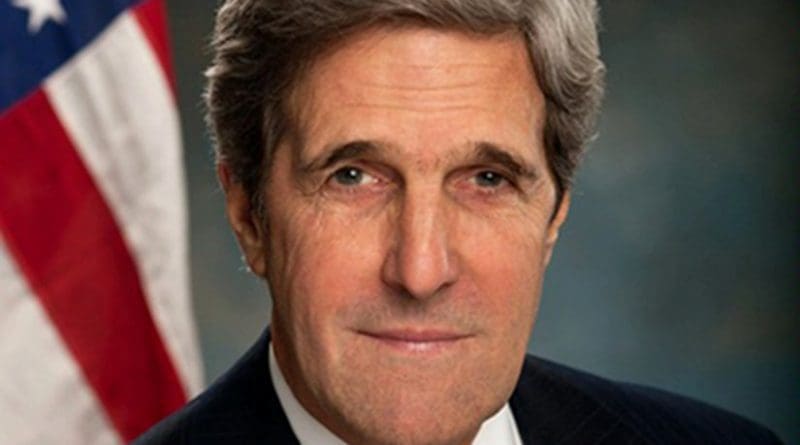Kerry’s Serbia-Kosovo Tour To Focus On Security
By Ivana Nikolic and Qendrese Mustafa
US Secretary of State John Kerry will be visiting both Serbia and Kosovo this week – another high-profile Western visit to the region lately.
John Kerry will visit Belgrade on December 3 to take part in the annual ministerial council of Organisation for Security and Co-operation in Europe, OSCE, organized by Serbia, the country chairing the organisation in 2015.
Serbia’s Foreign Minister and Deputy Prime Minister Ivica Dacic said the main topics during the two-day meeting will be security-related in the wake of the terrorist attacks in Paris that left 129 people dead.
“The ministerial meeting will be a great opportunity to talk about the fight against terrorism and questions concerning refugees,” Dacic said.
Kerry’s is the second senior Western official to come to Serbia in two weeks.
Earlier, Serbia hosted a visit by the NATO Secretary-General, Jens Stoltenberg, which experts said showed Serbia wants to maintain its foreign-policy balance between Russia and the West.
The NATO Secretary-General’s visit came shortly after the visit of the Serbian Prime Minister, Aleksandar Vucic, to Moscow where Serbia agreed to buy Russian weapons.
Bosko Jaksic, a Belgrade political analyst, told BIRN on Friday that Kerry’s visit to Serbia was mostly “ceremonial” and connected to the ongoing refugee crisis and terrorism.
However, he did not exclude the likelihood of important bilateral unofficial talks.
“Russian influence in the Balkans may be discussed behind the scenes, but it will not dominate [the talks] in public,” he predicted.
“It is obvious that the West will not initiate such a topic [in public] as it would even further damage already strained relations netween the East and West,” Jaksic said.
Kerry’s visit comes amidst heighten tensions in the region following the Paris attacks in mid-November, which have led to Balkans countries limiting transit rights to migrants from war-torn states.
Under new restrictions imposed last week, only Syrians, Afghans and Iraqis are being let through, while others from Iran, Bangladesh, Pakistan and elsewhere are being blocked.
A day before visiting Belgrade, Kerry will be in Kosovo, which has been in the middle of a political crisis for more than three months.
The crisis centres on the government’s agreements to the formation of an autonomous Association of Serbian Municipalities in Kosovo and to a border demarcation deal with Montenegro.
Opposition parties in Kosovo have been blocking the work of parliament since early October and even setting off tear gas in the chamber, demanding that the government scrap its recent EU-mediated agreement with Belgrade, which they say gives Kosovo Serbs too much power.
Pal Lekaj, an MP from the opposition Alliance for the Future of Kosovo, AAK, told BIRN that his party does not know if the opposition will meet Kerry during his visit to Kosovo.
Nevertheless, he does not believe that Kerry will urge the opposition to abandon its demands.
“We still stick to those requests and we’ll continue because we have a just cause to make Kosovo a functional country, in which we’ve invested together with our international friends,” Lekaj said.
Kosovar analyst Dukagjin Gorani argues that Kerry’s visit is mostly connected to security issues.
“It’s ambitious of us to think that Kerry will be coming here because we have a crisis. Kerry is going to be here for regional security issues and for regional-international cooperation,” Gorani told BIRN.
He thinks it far less likely that Kerry will be discussing Kosovo’s internal issues.
“His messages will surely be general messages. Maybe during the meetings and discussions with his team they may mention the requests of the US government, about the special court and the agreement with Serbia on normalization,” Gorani concluded.
The new special court, which is to be located in Kosovo and in The Netherlands, will deal with allegations that former fighters from the Kosovo Liberation Army, KLA, were involved in killings, abductions, illegal detentions and persecution in the war of independence.
The formation of the court, like the municipal associaation, remains highly controversial in Kosovo.

